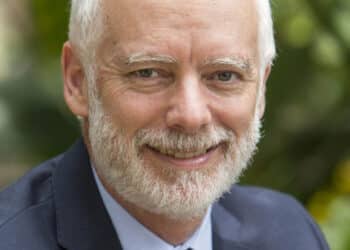DBA Lawyers special counsel Bryce Figot and lawyer Cassandra Hurley said the decision in Omibiyi and FCT [2025] ARTA 553, highlights that how a trustee or director of an SMSF takes accountability for any compliance breaches can make the difference between disqualification or a fine.
“The ATO can disqualify an individual from having an SMSF. However, the ATO has discretion as to when it exercises this power. Contraventions can occur without disqualification,” they said.
“Naturally, SMSF trustees/directors should strive to comply with all laws at all times. If a trustee fails to do so, how individuals address and take accountability for such mistakes is critical. Addressing them one way can result in disqualification and typically other negative impacts too. However, addressing them in other ways might only result in more ‘mild’ implications.”
The facts of the case show that in 2014, Oladokun Omibiyi (applicant) and his wife established an SMSF.
Figot and Hurley said the court heard that the applicant showed a “contumelious disregard for the law” by frequently accessing the SMSF for his own purposes for things such as paying mortgages over the family home and two investment properties.
Documents presented showed that between 2017 and 2023, the applicant’s outstanding loan balance increased from $5,160 to $103,399, with an SMSF auditor advising the applicant of contraventions seven times between those years, with three in 2021.
The court was also told that the SMSF’s annual returns were late for the 2015, 2018, 2019 and 2020 financial years.
In November 2023, the ATO advised that it had selected the SMSF for audit. In February 2024, the ATO issued the applicant a position paper that explained reasons why the ATO might disqualify the applicant from having an SMSF. The ATO counted 117 withdrawals from the SMSF.
The facts continued that in March 2014, the applicant stated to the ATO that the withdrawn funds were a loan “to be repaid along with interest”. Nevertheless, in April 2024, the ATO disqualified the applicant.
In May 2024, the applicant repaid the outstanding loan balance. Yet, the disqualification stood.
The applicant applied to the ART for review of the ATO’s disqualification.
Figot and Hurley said the ATO has a longstanding practice statement on disqualification (PS LA 2006/17) and although it did not expressly discuss the practice statement in its ruling, it did refer to a key consideration from that practice statement.
They said the issue referred to is that:
Disqualification … is primarily aimed at protecting the integrity of the superannuation system. It should be applied where we are concerned that allowing the individual to remain in the position of trustee would present a future compliance risk.
“The ART certainly adopted this concept in its decision. The ART cited a decision of the Full Court of the Federal Court, where Mortimer J considered how to determine future compliance risk,” they said.
“[In that decision the judge stated] ‘More than the bare recitation of the past offending is required, and what is required for such evidence to be considered is strictly controlled by reference to the nature and circumstances of the offending’.”
In its decision in the Omibiyi case, the ART said a number of provisions had been contravened.
These included:
Section 65 (prohibition on loans to SMSF members).
Section 83 (in-house asset rules).
Section 62 (sole purpose test).
Section 109 (arm’s length rules).
Section 35D (requirement to lodge annual returns on time) – the ART said it was “very serious” as contraventions may go undetected if annual returns were not lodged.
“The ART noted that the applicant’s past conduct indicated a likely preparedness to contravene obligations so as to improve his financial position in the future,” Figot and Hurley said.
“The contraventions were considered serious and repeated despite advice that he was breaching the law. Weight was also given to the fact that they occurred over an extended period of time (years) rather than over a short period.”
They continued that the ART also did not consider the contraventions to be due to a misunderstanding of the law or situation and that despite the applicant having sought advice and training since the contraventions, he had not demonstrated that had he had his “new” knowledge at the time of the contraventions he would not have acted in the same way.
“A disqualification is less likely if you can demonstrate that remaining as a trustee would not present a future compliance risk,” they said.
“Based on this ART decision, disqualification will be less likely where a course of education is completed after the contraventions are identified. In this case the Applicant intended to engage in courses after dealing with this application, but had not completed any.”
Additionally, they said, the ART would potentially look more favourably on a trustee/director if contraventions were few (here, there were 117 withdrawals) and annual returns were lodged on time instead of in this instance, where there were four years of late lodgment, preventing auditor advice from being given to the applicant in a timely fashion.
“Furthermore, it is better if the contraventions occur over a short period of time. In this case, the contraventions started in the 2017 financial year and were not fully rectified until May 2024. As well, it is more favourable if rectification action is taken as soon as the applicant is aware of the contraventions rather than after an ATO audit.”
They continued that trustees should also seek professional advice and assistance if they are aware of the contraventions, such as from lawyers, as early as possible, unlike in this instance, where the applicant only sought professional advice and assistance relatively recently from December 2024.
“That professional advice should also not be limited in nature.”
“Written and oral evidence of the applicant and their actions should be consistent with a person taking accountability for their choices and appreciation for the severity of the contraventions. In the Omibiyi case, the Applicant initially stated that his actions were inadvertent and said that he did not believe that the contraventions affected the SMSF’s assets or exposed the SMSF to risk.”


